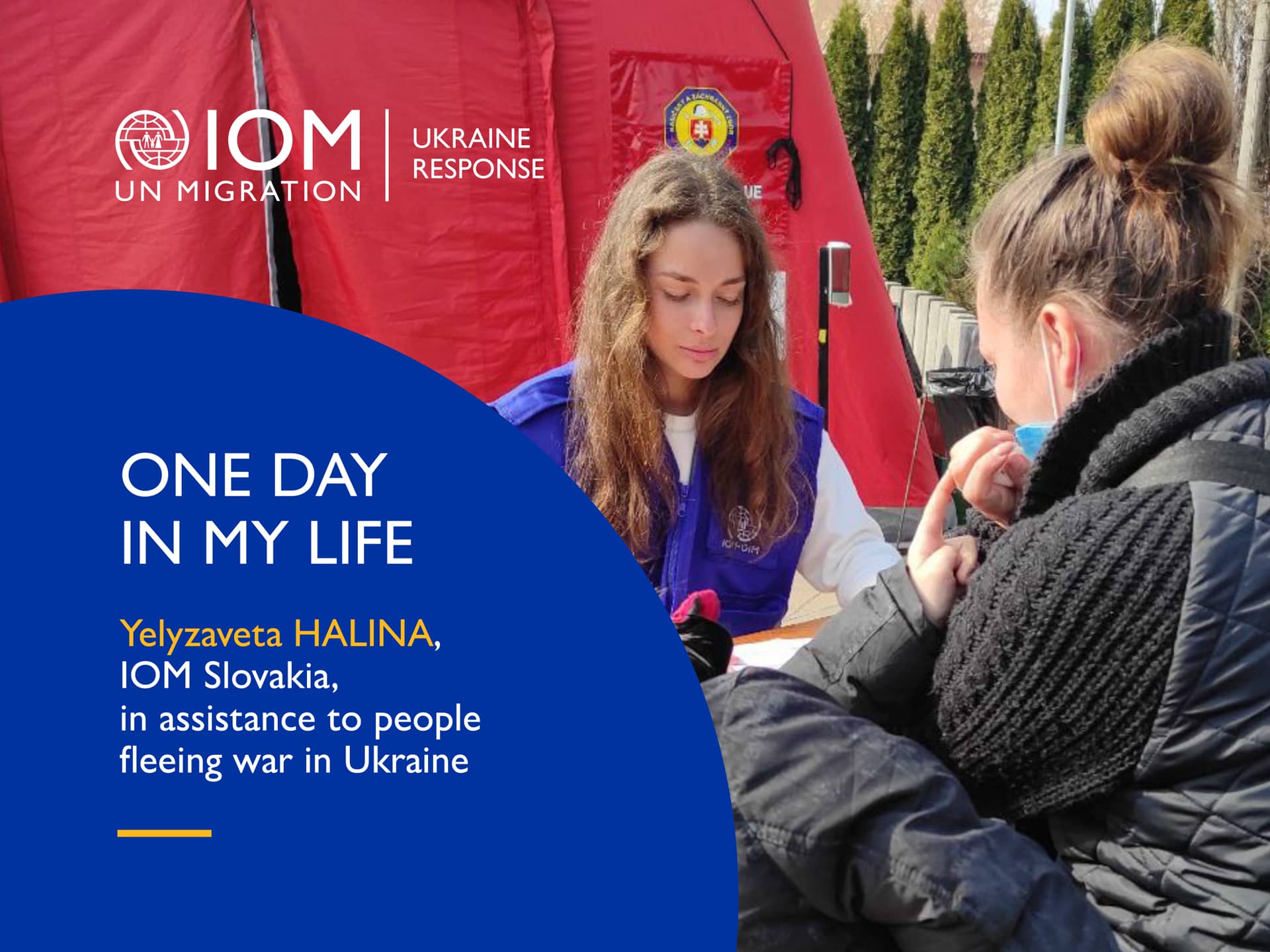Tento článok je publikovaný len v anglickom jazyku.
Yelyzaveta Halina, IOM Slovakia
I have a diary which I really like because I can express my emotions and thoughts in it. There is a special section which is called “100 dreams”. One of them came true. It was a point number 55 and it looked like that: “Working for the United Nations.”

On 24 February my mother and I woke up like every Ukrainian because of bombing. We didn’t believe till the end that the war would begin because we thought that it couldn’t be acceptable in the 21st century. I lived in Zaporizhzhia, a city situated in the south-eastern part of Ukraine, which it is really close to the battle line at the moment.
My mother and grandparents decided to stay in their native city. I left my city on 1 March. I remember that there was a lot of people on the railway station saying goodbye to their relatives and having no idea when they would be able to reunite.
I arrived in Slovakia on 3 March. I chose this country as my final destination because of several reasons. Firstly, my father works in Slovakia and his factory helped the families of their employees who had to flee the war and be accommodated for some time. Secondly, it is closer to the border and there are some similarities in languages and prices.
I have participated in many Erasmus+ projects and I have quite a lot of mates in Europe. But it turned out that I never met Slovak people. I asked my European friends to give me some contacts of people living in Slovakia. When I received these contacts, I sent several messages to different people saying that I would like to find out resources which could be useful for me as a refugee in this country. They sent me some links and one of them was IOM Slovakia.
I looked through this site, read information about temporary refugee and I accidently opened the section “Vacancies”. There was an advertisement on joining the IOM Emergency Response Team. I wasn’t sure whether to apply or not because I was confused by the point “Slovak - fluent”. Anyway, I sent my CV hoping that I would be a good match for this position. One week later, I got a phone call from Bratislava and I started to work for IOM on 24 March.
I decided to work for IOM Slovakia because I understood that there would be a lot of people fleeing war and coming to Slovakia because it is closer to the border. There are also some similarities in the languages and prices. I wanted to help Ukrainians who are in need and gain a new job experience in my life. I am really happy that I have managed to combine these 2 points.
I remember my first day in the office. I met my future colleagues and I understood that these people were extremely sincere in their desire to help and assist Ukraine in the scope of their work. I have passed several trainings which helped me understand the way the organization works, its values and ethics.
Working on the borders is a unique experience for me as you don’t always know what issues people can have.
|
There were 2 women; one of them was from Donezk and another one from Mykolaiv. They came to the Michalovce registration centre and they were waiting to get registered for temporary refuge in Slovakia. I asked if they had any questions about that issue and I provided them with all the necessary information because they knew nothing, they were completely lost and needed a person with a clear mind. I navigated them on the territory and asked volunteers to help them with transport and accommodation. Finally, they solved their problems and continued their way. Before they departed, the old woman from Mykolaiv said to me: “Remember, Liza, you will have a good husband because you help people.” It was so nice to hear these words understanding that it is the way Ukrainians can express their gratitude if they wish you such things. As a result, it was easy for me to get along with these women and help them to go through their difficulties in a less complicated way even though we didn’t know each other well. |
This situation reflects Ukrainian people who still try to believe in the best. Ukrainians used to say: “Everything will be alright.” But this time they still worry about the future, dignity and freedom of their native land.
More information about IOM assistance to people fleeing war in Ukraine.
This view presented herein do not necessarily represent the opinions of the International Organization for Migration (IOM).
 Slovenčina
Slovenčina
 Українська (Україна)
Українська (Україна)
 English
English
